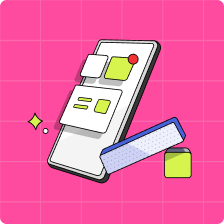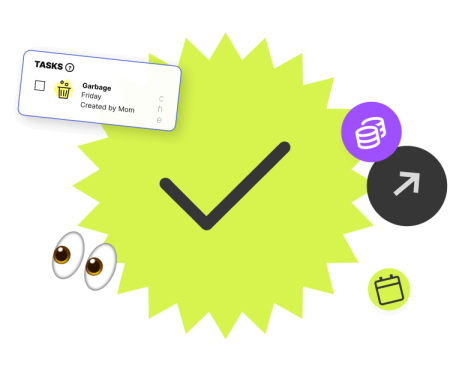As a parent, it can be challenging when your young teen won’t accept no for an answer. Do you give in or hold the line? Do you find a middle ground that satisfies everyone? Frustrating though these discussions can be, they’re also fertile ground for teaching kids and teens how to effectively negotiate—a skill that may, one day, help them negotiate a better salary, advocate for positive change in the community, or even lead peace talks.
Rather than avoid or shut down these debates, you can harness your kids’ natural inclination to question decisions by teaching them the art of negotiation.
Below, you’ll learn the benefits your kids can gain through learning how to negotiate, as well as useful tips on how to teach this valuable lifelong skill.
What is negotiation?
If you asked your kids to visualize people negotiating, what do you think they’d see? Two people having a peaceful discussion or two people arguing with tempers flaring? If they imagine a peaceful exchange, then they’re on the right track. Although some people think of negotiation as one person getting the upper hand while the other is forced to give in, today’s experts agree negotiation is about finding common ground so that all parties are satisfied. Although not easy, the ultimate goal is to reach a win-win situation.

At what age do kids negotiate?
Some parents will claim that kids start negotiating the day they learn the difference between “yes” and “no.” Certainly, by age four, most children have the language skills to communicate what they want, but are driven by emotion and lack the cognitive development necessary to negotiate. At this age, they are more likely to benefit from structure and a decisive yes or no.
After age eight, and into the tween years, kids have greater thinking and observation skills, as well as better memory. At this stage, kids may begin to negotiate with parents as they recognize the grey area between yes and no.
By the teen years, negotiation with parents and teachers is common. In fact, it’s a useful tool that helps them navigate their growing sense of identity, refines their moral values, and determines where they fit among their peers. They’re beginning to better understand the reasons why we negotiate.
Why should you teach your kids to negotiate?
Most of us aren’t born great negotiators. Negotiation requires a set of skills that take time, effort and practice to develop. As the parent, you’re probably the person your teen or tween will challenge most often; this offers you many opportunities to teach what makes a good negotiator.
As an authority figure, parents are also suited for modelling how to negotiate with someone in a position of power. This could prepare your teen for future negotiations with a difficult boss or to discuss salary with a manager in the workplace—an important skill that today’s young people are not necessarily taught, but can have a significant impact on their income over the course of a lifetime.
Kids who learn the art of good negotiation are also likely to be more empathetic and good listeners. These attributes can help build healthy relationships and friendships—particularly important during the peer pressure soaked teenage years.
How to teach negotiation skills to kids
Like any good skill, negotiation requires practice, and lots of it. Who better to practice with than their own parents? Chances are, you’re already negotiating frequently with your kids—whether you want to or not. Now, you can use the tips below to negotiate in a way that reaps the most benefits for your teen or tween. Don’t be surprised if your own skills get sharpened in the process! Role modelling is one of the best tactics for teaching how to negotiate.
Involve kids in your decisions
Your teen or tween won’t get many opportunities to practice negotiating if they aren’t given the opportunity to share in some of the decisions made regarding day-to-day life. Of course, this doesn’t mean every decision you make is up for negotiation. Know which issues are non-negotiable and be up front about that. You may be surprised to discover that there are many more issues than you realize that are open for debate, such as how much money they should save, allowances, chores, and curfews.
Don’t impose your views
Once you’ve decided an issue can be negotiated, try to keep your views to yourself, as this can send your teen in the opposite direction. Instead, allow kids to share their thought processes aloud to help them clarify what they’re asking. Encourage them to ask you questions, and be prepared to answer honestly. Suggest writing a list of pros and cons related to the issue under discussion, and to share what they think will be the outcome of that choice.
Curb the emotions
It’s common for negotiations to trigger a “fight or flight” response, because debates can often feel confrontational. Feelings of intense stress, anger or frustration, however, can prevent the talk from being productive. As the parent and role model, it’s important to try to keep your own emotions in check and not react strongly to what you’re hearing. This can also help offset any intense emotions that your kid may be experiencing.
Practice what experts call “negotiation jujitsu” which involves avoiding escalation of emotions by refusing to react. Instead, teach your teen or tween to channel those reactions into something more productive, like focusing on what the other person is interested in, and finding common ground.

Encourage active listening
Teach your kids how to listen actively by modelling that yourself. When your teen or tween expresses a view, refrain from interrupting. You can also set a rule that each person will be given a chance to talk. Experts of negotiation say that people are more likely to work on a problem when they are all given the opportunity to express their feelings and viewpoints. To ensure your teen is listening, and vice versa, you can each repeat what the other person has said. That way, there is less opportunity for misunderstanding.
Negotiation skills training games
Gamification can be an effective way of teaching and learning new skills, such as negotiating skills. There are games your teen or tween can play that teach how to negotiate in a fun, stress-free way. One of the most popular board games, Monopoly, offers the opportunity for players to negotiate trades and purchases to increase their chance of winning. It’s also a great money game for children. Catan—another popular game—relies heavily on negotiating with players to build settlements on a board. Both offer online versions, as well. Teens and tweens can also gain negotiation practice through video games, such as the game World of Warcraft.
Learn more: 12 video games that can teach you about money
How Mydoh can help kids and teens build real-world skills
The art of negotiation is a powerful skill that benefits teens and tweens in many ways. The more you practice negotiation with your kids today, the more likely they’ll be prepared to successfully and meaningfully negotiate in relationships, issues that they feel passionate about, and their future earnings.
Until then, Mydoh helps kids and teens learn money skills and practice them safely. Mydoh also gives you oversight on your kids’ spending, so you can guide them as they learn to manage their cash.
Download Mydoh and get started today.
This article offers general information only and is not intended as legal, financial or other professional advice. A professional advisor should be consulted regarding your specific situation. While the information presented is believed to be factual and current, its accuracy is not guaranteed and it should not be regarded as a complete analysis of the subjects discussed. All expressions of opinion reflect the judgment of the author(s) as of the date of publication and are subject to change. No endorsement of any third parties or their advice, opinions, information, products or services is expressly given or implied by Royal Bank of Canada or its affiliates.

















